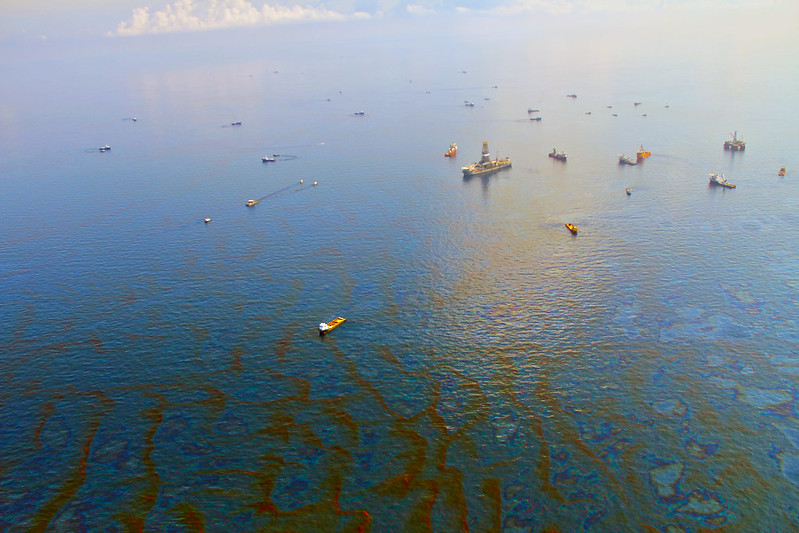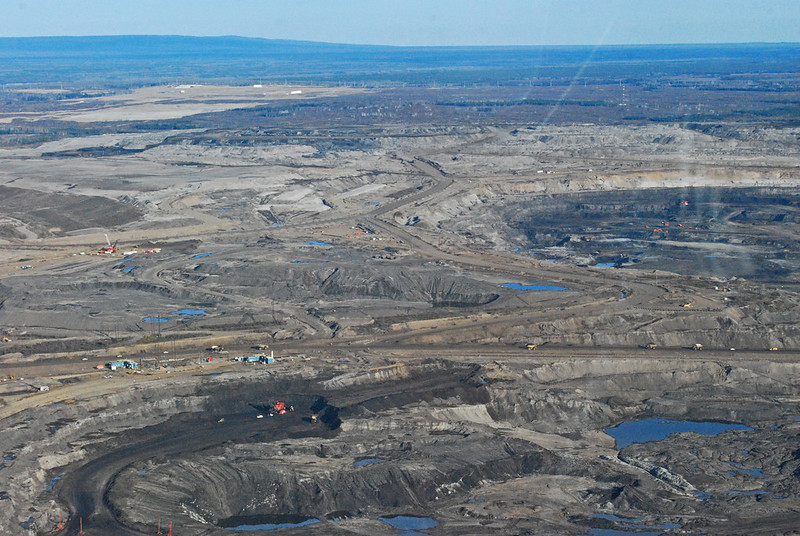Who’s In The Way
Who’s In The Way
Obstacle 1:
Fossil fuel Industry
The Fossil fuel industry is the bedrock of capitalism. Big Oil companies have known about the destruction that burning fossil fuels wrecks on the planet for decades, but hid the truth for as long as possible. Now, that the planetary devastation caused by fossil fuels has become common knowledge, the energy sector continues to act despite that truth because they can. Transitioning away from fossil fuels requires a fundamental change in society, so the global political forces that are comfortable within the capitalist status quo are letting the fossil fuel industry continue the planetary destruction, while quickly and effectively enriching themselves and those who allow the extraction to continue. Analysis by Oil Change International demonstrated that G20 countries spend $444 billion per year in subsidies to oil, gas, and coal production - government backing of the fossil fuel sector around the world is one the main reason the industry survives to this day. Keeping fossil fuels in the ground, particularly given how increasingly destructive the methods of extraction have become as we continue to exhaust the resources, is a fundamental step of energy justice work.
 "Deepwater Horizon Oil Spill Site" by Green Fire Productions is licensed under CC BY 2.0
"Deepwater Horizon Oil Spill Site" by Green Fire Productions is licensed under CC BY 2.0
Who’s Working on Dismantling the Fossil Fuel Industry:
Oilwatch
Oilwatch is a network of resistance to the impacts of fossil fuels (oil, gas and coal) industries on people’s and their environments.- Oilwatch Worldwide, News & Campaigns
- Oilwatch Africa 2019 Declaration: Stop the Extractivist Addiction
- Keep Oil Underground: A report by Oilwatch with case studies from the Global South
- Links to organizations organizing against fossil fuel destruction around the world
Oil Change International
OCI works to expose the true costs of fossil fuels and facilitate the ongoing transition to clean energy.- Stop Funding Fossil Fuels Program uses critical analysis and strategic organizing to end the vast quantities of government support flowing to the fossil fuel industry and accelerate the clean energy transition.
- Still Digging: G20 Governments Continue to Finance the Climate Crisis: The report finds that since the Paris Agreement, G20 countries have acted directly counter to it by providing at least USD 77 billion a year in finance for oil, gas, and coal projects through their public finance institutions.
Treaty Alliance to Stop Tar Sands Expansion
This Treaty is an expression of Indigenous Law prohibiting the piplines/trains/tankers that will fuel the expansion of the Alberta Tar Sands




Stop the Money Pipeline
Stop the Money Pipeline is a campaign targeting the financial sector’s support of the cliamte crisis- Rainforest Action Network Campaign: JPMorgan Chase Defund Climate Change
- Liberty Mutual: Ditch Fossil Fuels!
- BlackRock’s Big Problem: Campaign targeting asset managers to stop driving climate change
- DivestED : National training and strategy hub for student fossil fuel divestment campaigns.
- Sign the pledge to divest in the next year - put your money where your solidarity is (organized by Mazaska Talks)
More resources on dismantling the fossil fuel industry:
Reports:
- Towards a Post-Oil Civilization: Yasunization and other initiatives to leave fossil fuels in the soil, EJOLT
- Banking on Climate Change 2020: Fossil Fuel Finance Report Card, RAN
- Drilling Towards Disaster: Why U.S. Oil and Gas Expansion Is Incompatible with Climate Limits, Oil Change International (OCI)
- Burning the Gas ‘Bridge Fuel’ Myth: Why Gas Is Not Clean, Cheap, or Necessary, OCI
- Building a Post Petroleum Nigeria (Leave new oil in the soil), a Proposal by Friends of the Earth Nigeria & Environmental Rights Action
- Oil, Gas and Climate: An Analysis of Oil and Gas Industry Plans for Expansion and Compatibility with Global Emission Limits, CIEL
Campaign:
- Pledge to Divest, Mazaska Talks
Obstacle 2
Mineral Extractivism
 "The Mine... Another Look" by Storm Crypt is licensed under CC BY-NC-ND 2.0
"The Mine... Another Look" by Storm Crypt is licensed under CC BY-NC-ND 2.0
Mining for minerals has a similar record to fossil fuel extraction in terms of the egregious human rights violations and environmental devastation. Minerals are used in everything from our smartphones and jewelry to electrical wiring and fertilizers - and, similarly to oil, the more we deprive this nonrenewable resource, the more destructive the methods of extraction become.
It is crucial to draw attention to mineral extractivism when discussing a Just Energy Transition. An important element to consider in fighting for a transition towards renewable energy are the non-renewable inputs required to produce that energy. Minerals, particularly rare earth elements, are essential to the production of renewable energy, from solar panels to wind turbines and batteries. Many of the key minerals critical to renewable energy production are already scarce and have a history of violence and even slave labor associated with their production. Besides, as analysis by EarthWorks shows “The skyrocketing demand for these minerals is driving the expansion of mining in geographic “hotspots” throughout the world – and even to the depths of the ocean – with disproportionately negative impacts in the Global South.”
The necessity of nonrenewable resources - commonly devastating to both communities and the planet, especially when produced at a large industrial scale - in renewable energy against points to the dire need to actually decrease and localize energy and mineral demand.
Below are examples of communities successfully transitioning out of extractivist mining economy, as well as organizations advocating for people and places affected by skyrocketing mineral demands.
Yes to Life, No To Mining (YLNM)
YLNM is a global solidarity network of and for communities, organisations and networks who are standing up for their Right to Say No to mining and advancing life-sustaining, post-extractive alternatives. In collaboration with the Gaia Foundation, YNLM launched a series of Emblematic Case studies from communities around the world that have been successfully resisting destructive mining.- Myanmar Case Study: A collective from the Karen Environment and Social Action Network (KESAN) describe the Indigenous Karen People’s connection to their ancestral territory, and how they created the Salween Peace Park to assert their right to self-determination and protect their lands from militarism, mining and mega-dams.
- Cajamarca, Colombia Case Study: A study of how farmers, youth and other environmental defenders from Cajamarca, Colombia, have stopped a vast gold mine, re-valued the ‘true treasures’ in their territory and begun to develop regenerative alternatives to mining ‘development’.
- Galiza Case Study (Regenerating the Commons): Joám Evans Pim, villager in the Frojám Community Conserved Area and activist in Galician anti-mining network ContraMINAcción, explains how small communities like Frojám are confronting destructive mining by regenerating community governance and traditional territories.
Environmental Justice Organisations, Liabilities and Trade (EJOLT)
EJOLT looks at mining conflicts and waste disposal conflicts to study the links between increased metabolism of the economy and environmental damage.EJOLT notes following organizations working against mineral extractivism:
Mines and Communities (MAC)
The MAC website seeks to exposes the social, economic, and environmental impacts of mining, particularly as they affect Indigenous and land-based peoples.Mines, Minerals and People
MM&P is a growing alliance of individuals, institutions and communities who are concerned and affected by mining. The isolated struggles of different groups have led us to form into broad a national alliance for combating the destructive nature of mining.Mining Justice Alliance
MJA is a coalition of activists, civil society organizations, students, and community members who initially formed to mobilize around Gorldcorp’s 2011 Annual General Meeting. Our focus has expanded in response to widespread concerns about endemic injustice within Canada’s state-supported mining industry.MiningWatch Canda:
MiningWatch Canada works in solidarity with Indigenous peoples and non-Indigenous communities who are dealing with potential or actual industrial mining operations that affect their lives and territories, or with the legacy of closed mines, as well as with mineworkers and former workers seeking safe working conditions and fair treatment.Observatorio de Conflictos Mineros en América Latina (OCMAL) [ES]
OCMAL’s main objective is the defense of the communities and peoples that are impacted by the effects of mining in the region.More Reading Materials:
- Performing ‘blue degrowth’: critiquing seabed mining in Papua New Guinea through creative practice by John Childs
- Extracted: How the Quest for Mineral Wealth Is Plundering the Planet by Ugo Bardi
- The Geopolitics of Mineral Resources for Renewable Energy Technologies by Marjolein de Ridder
- Responsible Mineral Sourcing for Renewable Energy by EarthWorks
- Report: Going 100% renewable power means a lot of dirty mining, Grist
- FACT SHEET: Battery Minerals for the Clean Energy Transition, EarthWorks